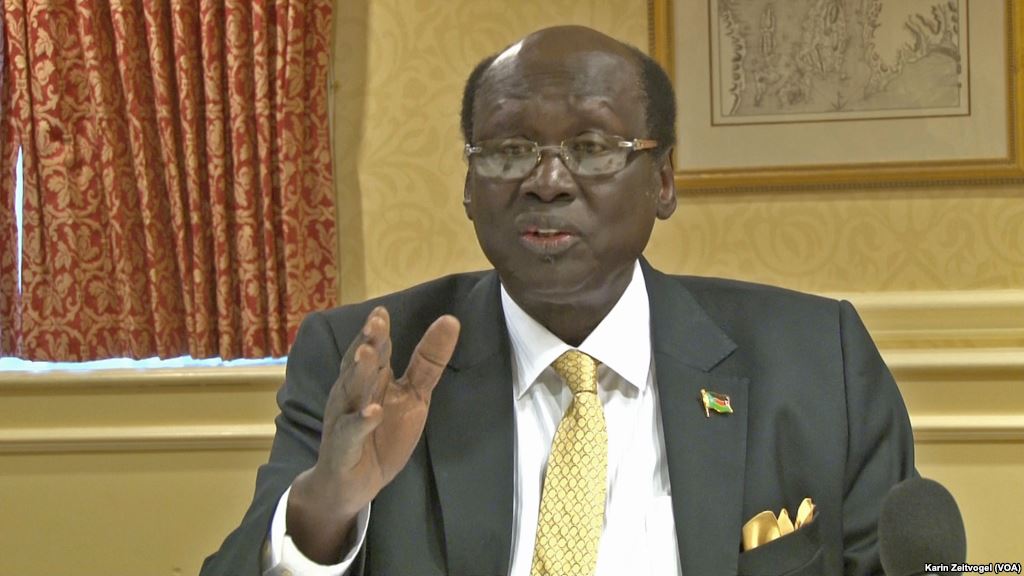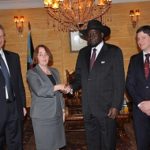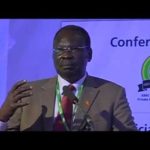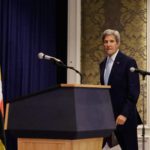South Sudan could be getting only about US$5 per barrel of crude oil after its northern neighbor deducting transit charges, experts say.
In April last year South Sudan earned as low as US$10 per barrel but the recent development comes in the wake of the South Sudan Minister of Foreign Affairs Barnaba Marial Benjamin saying the South Sudanese oil minister and the Sudan counterparts will meet over the oil transit fees which remain at $24 per barrel despite reduced global oil prices.
“There is economic reality in which both countries of course through ministries of petroleum are going to discuss that issue,” local media quoted the Minister as saying.
According to the minister, even the production of oil in his country has gone down.
“The reality of the fact is that the production of the oil is down. We are producing about 165,000 barrels a day and on top of that there is drop in the oil prices,” he said.
Meanwhile, the foreign minister, who represented President Salva Kiir Mayardit at Sudan’s 60th Independence Day celebrations on Jan 1 in Khartoum, has said relations with Khartoum are historical and should be strengthened.
“The leadership of President Salva Kiir Mayardit and the people of South Sudan have shown our brothers and sisters in the Sudan that we want good relations,” he said.
“We are to strengthen our relations as I told them. We are going to be neighbours until resurrection, until the end of the world. So it is better now we improve our relations so that the future generation will live side-by-side in peace and harmony,” he added.
Marial also revealed that the Sudanese education ministry had accepted to charge South Sudanese students tuition fees at local rate.
“We were promised by the government of the Republic of Sudan that the students from primary education, going to secondary education will not again pay $150 for registration fees for exams. It will not be there anymore. They will pay like any other Sudanese students,” he said of one vital item discussed during his five day visit to Khartoum.
The top South Sudanese diplomat also reiterated the South Sudan government offer to mediate peace talks between SPLM-north rebels and Khartoum.
Sudan and South Sudan agreed last October to reactivate the buffer zone agreed in the Cooperation Agreement of September 27, 2012, and to redeploy joint monitoring teams along the border.
A Sudanese state minister for foreign affairs said the two countries are considering the resumption of border trade and ensuring free movement of goods and citizens across borders, as provided in the Cooperation Agreement.
In the past Khartoum has rejected the opening of border before the implementation of security agreements and insisted that Juba should first stop its support to the rebel groups and interfering in its internal affairs.








